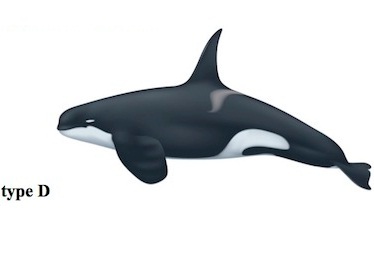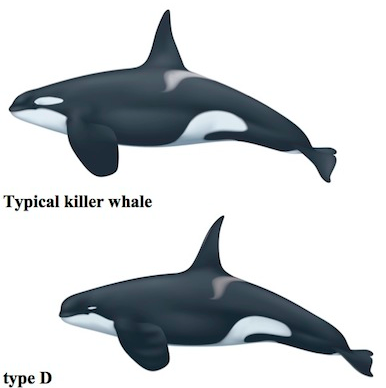People don’t really like to hang out in the water around Antarctica, I GUESS because it’s insanely cold and turbulent (although that sounds kind of nice right now, like taking a dip in a slushee machine). That’s too bad, because otherwise we might see the Emily Dickinson of the sea: the weird-looking, elusive “type D” killer whale.
A new study in Polar Biology suggests the type D orca genetically branched off from the main line of killer whales almost 400,000 years ago. There could be up to six or seven types of killer whales, each with its own unique personality, favorite restaurant, and line of handbags (fine, maybe not those last two). Type D orcas in particular have blunt, smashed noses, slightly hooklike dorsal fins, and much smaller white spots near their eyes than other orcas. Wired explains the new study:
The first record of Type D orcas dates back to 1955, when 17 of the odd-looking whales stranded on Paraparaumu Beach on New Zealand … Scientists collected a skeleton and brought it to the Museum of New Zealand Te Papa Tongarewa in Wellington, where it’s been for almost 60 years.
[Recently] scientists went back to the New Zealand museum. There, they extracted DNA from bone and soft tissue clinging to the skeleton from the 1955 stranding. They ground up the samples, releasing decades-old genetic material. From that pool emerged the whale’s mitochondrial DNA, small rings of no more than 17,000 base-pairs that live within the energy-producing organelles in cells.
Two geneticists compared this material to that of Southern Ocean killer whales and were shocked to find the two were totally different. It’s like, HELLO. The ocean is full of surprises! Scientific research is great and all, but I think the next step should be devoting some time to figuring out what the D stands for and cultivating an orca rapping career accordingly.




